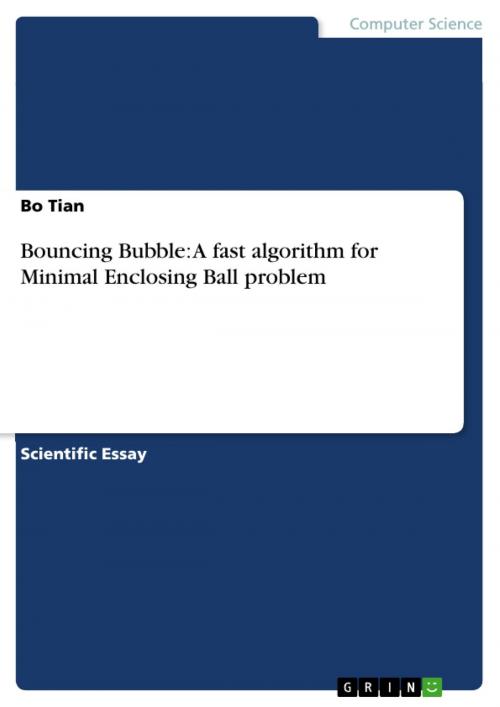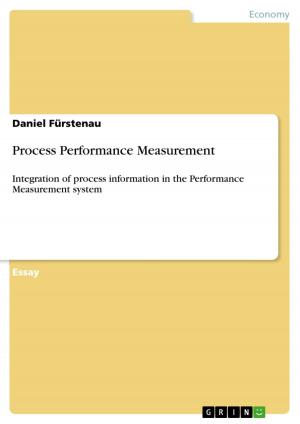Bouncing Bubble: A fast algorithm for Minimal Enclosing Ball problem
Nonfiction, Computers, Advanced Computing, Theory| Author: | Bo Tian | ISBN: | 9783656326663 |
| Publisher: | GRIN Publishing | Publication: | November 29, 2012 |
| Imprint: | GRIN Publishing | Language: | English |
| Author: | Bo Tian |
| ISBN: | 9783656326663 |
| Publisher: | GRIN Publishing |
| Publication: | November 29, 2012 |
| Imprint: | GRIN Publishing |
| Language: | English |
Scientific Essay from the year 2012 in the subject Computer Science - Theory, , language: English, abstract: In this paper, a new algorithm for solving MEB problem is proposed based on new understandings on the geometry property of minimal enclosing ball problem. A substitution of Ritter's algorithm is proposed to get approximate results with higher precision, and a 1+? approximation algorithm is presented to get the approximation with specified precision within much less time comparing with present algorithms. Like Ritter's algorithm, this algorithm iterates over all points and increase the radius gradually. However, the algorithm does not try to cover all seen points in each step, instead, it will create a new ball (or circle in 2D case) to just touch the new point and cover half of the existing ball. This approach makes sure that the new ball is always increasing in its size and still be smaller than the optimal ball. And finally, a Ritter's algorithm is applied to ensure every point is covered. The result is an approximate solution to the MEB problem. The radius is usually just slightly bigger than the optimal solution (around 1%) instead (5-20% with Ritter's algorithm). This paper also explained how to compute 1+? approximation solution, where ? is specified to a given precision.
Scientific Essay from the year 2012 in the subject Computer Science - Theory, , language: English, abstract: In this paper, a new algorithm for solving MEB problem is proposed based on new understandings on the geometry property of minimal enclosing ball problem. A substitution of Ritter's algorithm is proposed to get approximate results with higher precision, and a 1+? approximation algorithm is presented to get the approximation with specified precision within much less time comparing with present algorithms. Like Ritter's algorithm, this algorithm iterates over all points and increase the radius gradually. However, the algorithm does not try to cover all seen points in each step, instead, it will create a new ball (or circle in 2D case) to just touch the new point and cover half of the existing ball. This approach makes sure that the new ball is always increasing in its size and still be smaller than the optimal ball. And finally, a Ritter's algorithm is applied to ensure every point is covered. The result is an approximate solution to the MEB problem. The radius is usually just slightly bigger than the optimal solution (around 1%) instead (5-20% with Ritter's algorithm). This paper also explained how to compute 1+? approximation solution, where ? is specified to a given precision.















